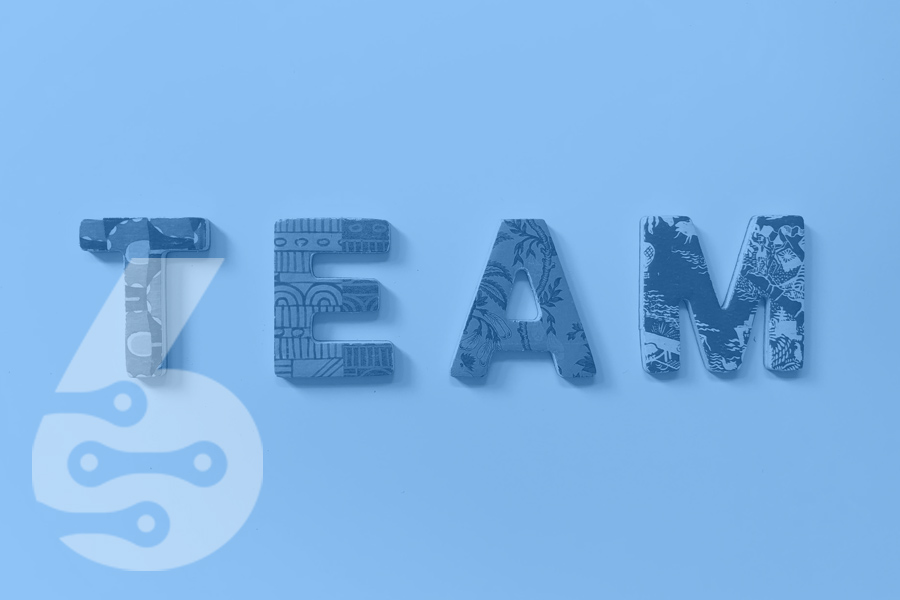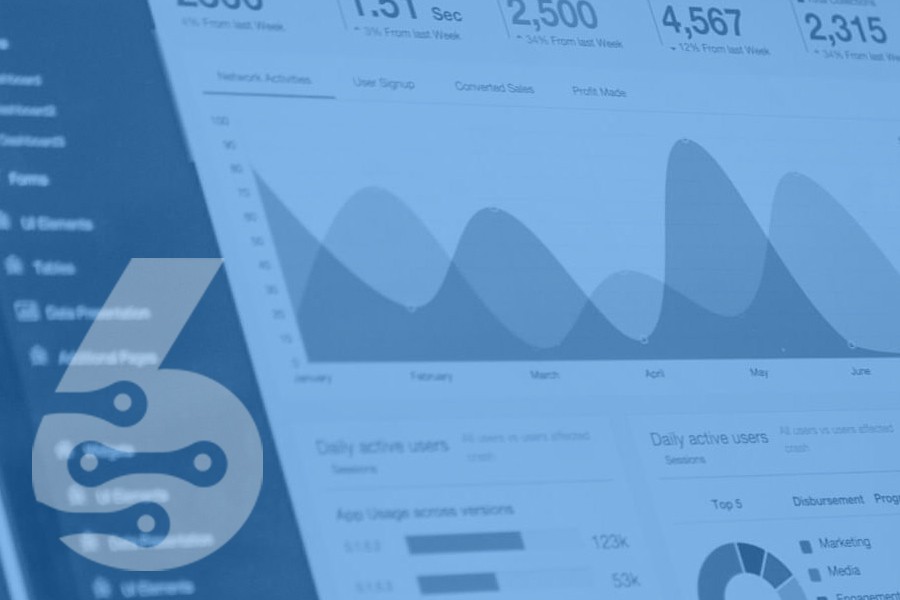- ERP Systems
- 02.11.2022
Managed Cloud ERP
12 reasons why they outperform other ERP solutions
Dr. Andreas Maier
02.11.2022
As your business grows, it becomes increasingly important to have a reliable and efficient system to manage your operations. A cloud-based ERP system is the perfect solution for businesses of all sizes, from small SMEs to large global corporations. Not only is it scalable, but it also provides several other benefits essential for success. This article will discuss why you should move to a managed cloud ERP system and not just a cloud ERP.
What is a Cloud ERP?
Cloud ERP solutions are software that allows businesses to manage their operations and finances from a remote location. Cloud ERP solutions are web-based, meaning they can be accessed from any device with an internet connection. They are also typically subscription-based, meaning businesses only pay for their services.
Cloud ERP solutions emerged in the early 2000s as a way for businesses to manage their finances online. At the time, most companies relied on on-premises ERP software that needed to be installed and maintained on-site. Cloud ERP allowed businesses to move their operations online without worrying about installing and maintaining software.
Since then, cloud ERP has become increasingly popular thanks to the rise of cloud computing. Cloud computing allows businesses to access software and data from anywhere in the world, making it the perfect platform for cloud ERP solutions.
Benefits of Cloud ERP solutions
Today, cloud ERP systems are used by millions of businesses around the world. It offers many advantages over traditional on-premises ERP software, including:
- Reduced Costs: Businesses can save money by using cloud ERP instead of on-premises ERP. This is because there is no need to purchase or maintain hardware or software.
- Increased Flexibility: Cloud ERP can be accessed worldwide, so businesses can work anywhere they want. It also allows companies to scale up or down as needed, making it perfect for growing businesses.
- Increased Efficiency: Cloud ERP allows businesses to automate tasks and streamline processes. This can lead to increased efficiency and productivity.
- Improved Security: Cloud ERP systems are often more secure than on-premises ERP systems because they are hosted in the cloud. This means that businesses can benefit from the latest security technologies.
SaaS, Self-Hosted or Managed Cloud ERP Systems
When choosing a cloud ERP solution, businesses have three main options: SaaS, self-hosted, and managed cloud ERP. Each option has its advantages and disadvantages.
SaaS ERP systems are the most popular type of cloud ERP. They are subscription-based, and users pay based on the number of users. The company doesn't need to upgrade or maintain software or hardware and gets extensive support. SaaS ERP systems are typically more expensive than other types of cloud ERP. They are billed on a monthly per-user subscription base which can be costly for large businesses as more central systems charge up to 200€ per user/month (whopping 2400€ per user/year). Therefore, SaaS solutions are primarily interesting for small and micro enterprises.
Self-hosted ERP systems are hosted on the business's servers. This means that businesses have more control over their data and can customize the software to meet their specific needs. However, self-hosted ERP systems can be more expensive than SaaS ERP because businesses need to purchase and maintain their hardware and software. Self-hosted ERPs have similar properties to on-premise solutions, but support for the ERP is primarily not included or a yearly fee on top. Self-hosted might be an exciting option for companies with large IT departments and the necessary resources to upgrade, maintain and manage ERP and hardware.
Managed cloud ERP systems are a hybrid of SaaS and self-hosted ERP. They have dedicated servers or resources for every company and no shared databases like SaaS. The provider will update and manage the ERP; therefore, the company doesn't need its resources to maintain the ERP system and server environment. Businesses do not need to worry about installing, maintaining, or updating software or hardware. Managed cloud ERP systems are typically the least expensive option when calculating the Total Cost of Ownership (TCO) for most companies of every size.
Seamless, Smart, and Stress-Free – Welcome to SIX ERP.
12 Benefits of Managed Cloud ERPs
There are many reasons why businesses should move to managed cloud ERP. Here are some of the most important benefits:
- Reduced costs
- Increased flexibility
- Scalability
- Easier customization
- Fast implementation
- Simplified compliance
- No worries about upgrades and maintenance
- Access to the newest technologies
- Real-time data
- Business Continuity and Disaster Recovery
- Global Accessibility
- Piece of Mind
Reduced Costs
As mentioned above, businesses can save money by using managed cloud ERP instead of on-premises ERP or self-hosted ERP. This is because there is no need to purchase or maintain hardware or software. In addition, businesses will not need to pay for support or upgrades and don't need an internal IT team.
Increased Flexibility
Managed cloud ERP can be accessed from anywhere worldwide, so businesses can work from anywhere they want. It also allows companies to scale up or down quickly and easily, as they only need to pay for the resources they use.
Scalability
For fast-growing businesses using a managed cloud ERP system is crucial as it can scale their resources up or down quickly and easily. This means that businesses only pay for the resources they use and can increase or decrease their usage as needed. This is a significant advantage over on-premises ERP systems, which are challenging to adapt quickly.
Easier Customization
One of the main benefits of using a managed cloud ERP system is that it is much easier to customize than traditional ERP systems. With a managed cloud system, the provider takes care of all the customization for you, so you don't have to worry about hiring a separate team of developers to make changes to the system. If the ERP system allows it, API access can also be given to allow for further integrations.
Fast implementation
Many businesses use a managed cloud ERP system because it is faster to set up than on-premise or self-hosted ERP systems. With a managed cloud ERP system, the provider takes care of all the installation and configuration for you. You don't have to worry about hiring a separate team of developers to get your system up and running. Managed cloud ERP systems can be up and running quickly, usually within a few days or weeks.
Simplified compliance
One of the main benefits of using a managed cloud ERP system is that it is much easier to comply with regulations and standards. Unlike SaaS ERP systems, which use shared databases, managed cloud ERP systems store all data on dedicated databases, so businesses can be assured that their data is fully protected and compliant. In addition, managed cloud ERP systems are updated and maintained by the provider, so businesses don't need to worry about installing and maintaining or updating software or hardware. This makes it easy for businesses to keep their system up-to-date with the latest regulations and standards.
No worries about upgrades and maintenance
One of the main benefits of using a managed cloud ERP system is that businesses do not need an internal IT team to maintain the system. This means businesses can save money by not having to pay for an internal IT staff and free up valuable resources that can be used for other tasks. In addition, businesses will not need to worry about installing and maintaining hardware or software, saving them a lot of time and money.
Access to the newest technologies
One of the advantages of using a managed cloud ERP system is that businesses have access to the newest technologies. This means businesses can use the latest technological advancements to improve their business processes and operations.
Real-time data
One of the biggest business benefits of using a managed cloud ERP system is that businesses can access real-time data. This means businesses can make decisions in real time and avoid delays when relying on outdated data. Additionally, businesses can connect their ERP system to other data sources, such as social media or customer databases, to get a complete view of their business. This allows businesses to make better decisions based on all the available information.
Business Continuity and Disaster Recovery
Business continuity and disaster recovery are two of the main benefits of using a managed cloud ERP system. With a managed cloud ERP system, businesses can be assured that their data is fully protected during a disaster. In addition, businesses can take advantage of the provider's business continuity and disaster recovery services, which can help them quickly get back up and running in the event of a disaster. This can be a lifesaver for businesses that rely on their ERP system to run their business.
Global Accessibility
Using a managed cloud ERP system gives you global access to your company and ERP. This means businesses can access their ERP system from anywhere in the world as long as they have an internet connection.
Piece of Mind
Many business owners find peace of mind when using a managed cloud ERP system. With all of the tasks being taken care of by the provider, business owners can focus on running their business and not worry about managing an ERP system. Additionally, businesses do not have to worry about high costs like with SaaS or other ERP solutions. This makes it easy for businesses to get started with a managed cloud ERP system and save money.
Conclusion on managed cloud ERP systems
The benefits of using a managed cloud ERP system are clear. Businesses can save money by not having to pay for an internal IT staff and free up valuable resources that can be used for other tasks. In addition, businesses will not need to worry about installing and maintaining hardware or software, saving them a lot of time and money. Additionally, businesses have access to the latest technologies, real-time data, and global accessibility. These benefits make it easy for businesses to see why a managed cloud ERP system is the next evolutionary step for ERP systems.
If you're looking for an easier way to manage your business operations and comply with regulations and standards, then a SIX ERP will be the best solution for your business. SIX is a leading provider of managed cloud-based ERP solutions, and we can help you take advantage of all the benefits that you read in this article.
Contact us today to learn more about how we can help you streamline your business operations.
We look forward to hearing from you!
About the author
Andreas Maier is a results-driven CEO with nearly 30 years of experience in ERP, digital transformation, and IT consulting. He has held leadership positions in Fortune 100 companies such as rentalcars.com (PCLN) and Intrasoft International, a leading EU-based R&D software vendor. With a Ph.D. in Neural Networks from the University of Cologne, Andreas combines deep technical expertise with a strategic approach to business process optimization.
As the founder and co-founder of multiple successful startups, including XXL Cloud Inc., eShopLeasing Ltd, and WDS Consulting SA, his expertise lies in ERP consulting, IT strategy, and process automation. His work is focused on helping businesses implement scalable ERP solutions, streamline operations, and drive digital transformation.
Related articles

ERP implementation team structure
ERP (Enterprise Resource Planning) systems are essential for businesses of all sizes to streamline operations and increase efficiency. ERP software integrates different business processes, such as accounting, human resources, inventory...
What is Enterprise Resource Planning (ERP)?
If you're an entrepreneur, then you know that managing a company can be difficult. You may be using some software to help manage parts of your company or sales, but...



